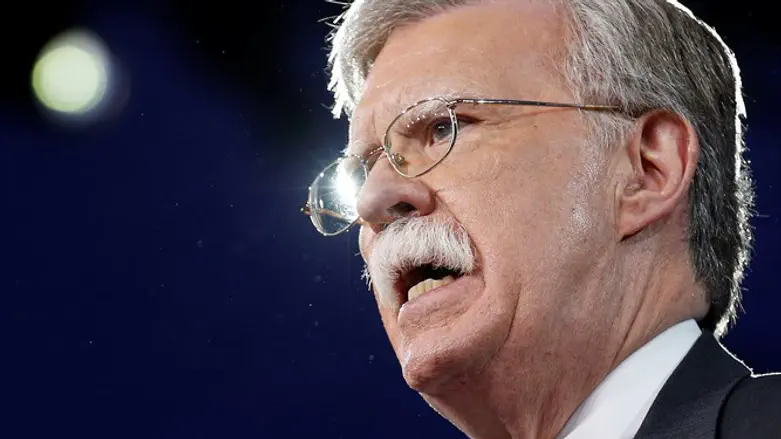
U.S. National Security Adviser John Bolton on Tuesday discussed President Donald Trump’s announcement that the United States was withdrawing from the 2015 nuclear deal signed between Iran and world powers.
Bolton pointed out that the deal “was fundamentally flawed, as the President said. It does not do what it purports to do. It does not prevent Iran from developing deliverable nuclear weapons. It allows Iran to continue technologies like uranium enrichment, reprocessing of plutonium. It allows them -- even if they're in compliance with the deal -- to increase their research and development on the sophistication of their nuclear capabilities. And it simply has an utterly inadequate treatment of the military dimension of Iran's aspirations.”
He also added that there is no adequate inspection provision in the agreement that allows the U.S. to have confidence that all of Iran's nuclear-related activities were detected.
“So creating this new reality, recognizing that Iran has used the course of the negotiations, the lengthy period leading up to the deal to increase the capability and sophistication both of its nuclear weapons program and its ballistic missile program, and has continued to do so since the deal in 2015 -- the only sure way to get on the path of stopping Iran from developing nuclear weapons and delivery capabilities is to get out of the deal. And that's what the President has done,” said Bolton.
The adviser pointed out “plenty of cases where we're simply incapable of saying whether they're in compliance or not. There are others where I think they've clearly been in violation.”
“For example, their production of heavy water has repeatedly exceeded the limits permissible under the JCPOA. They're almost in the heavy water production business. They sell excess to Oman. They've sold it to European countries. It’s a way of keeping the heavy water production facilities alive. They're warm. And that's part of the danger. And they have exceeded the limits,” stressed Bolton.
He added that Trump’s decision will have implications not only for Iran, but for the President’s upcoming meeting with North Korean leader Kim Jong Un as “it sends a very clear signal that the United States will not accept inadequate deals, as the President said.”
“I think the message to North Korea is the President wants a real deal; that what we're asking for, what Secretary Pompeo will be discussing with people in North Korea when he arrives there in further preparation for the meeting with Kim Jong Un is -- in part, rests on what North Korea itself agreed to going back to the 1992 joint North-South denuclearization declaration: the elimination of both the front and the backend of the nuclear fuel cycle; no uranium enrichment; no plutonium reprocessing. There are other things we'll be asking for as well,” said Bolton.
“I think the President made it clear in his remarks today how deleterious Iran's conduct across the region has been on a whole range of fronts, and that one of the principal inadequacies of the nuclear deal was that it didn't address that other malign behavior. So that's the purpose of what we're doing there,” he explained.
